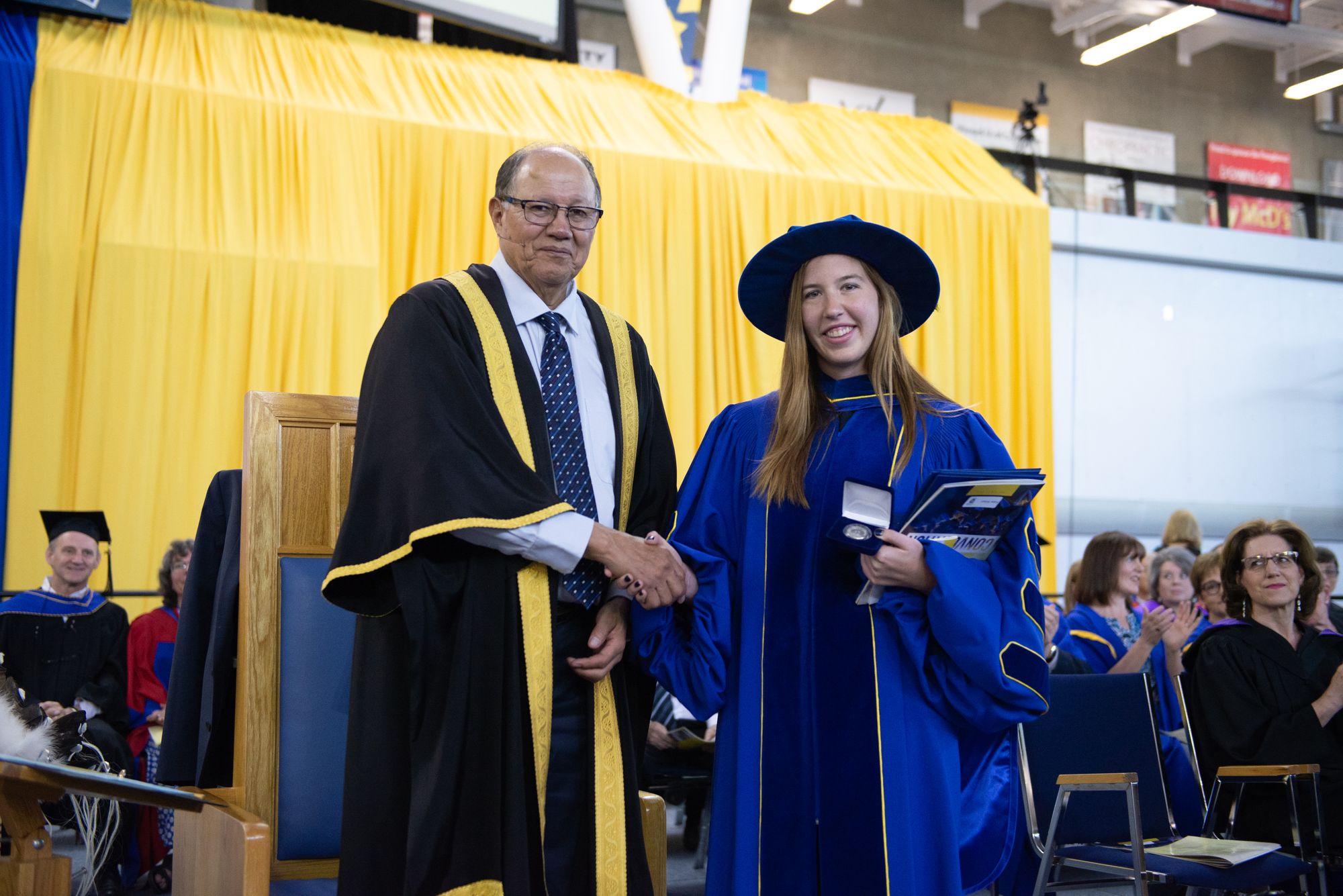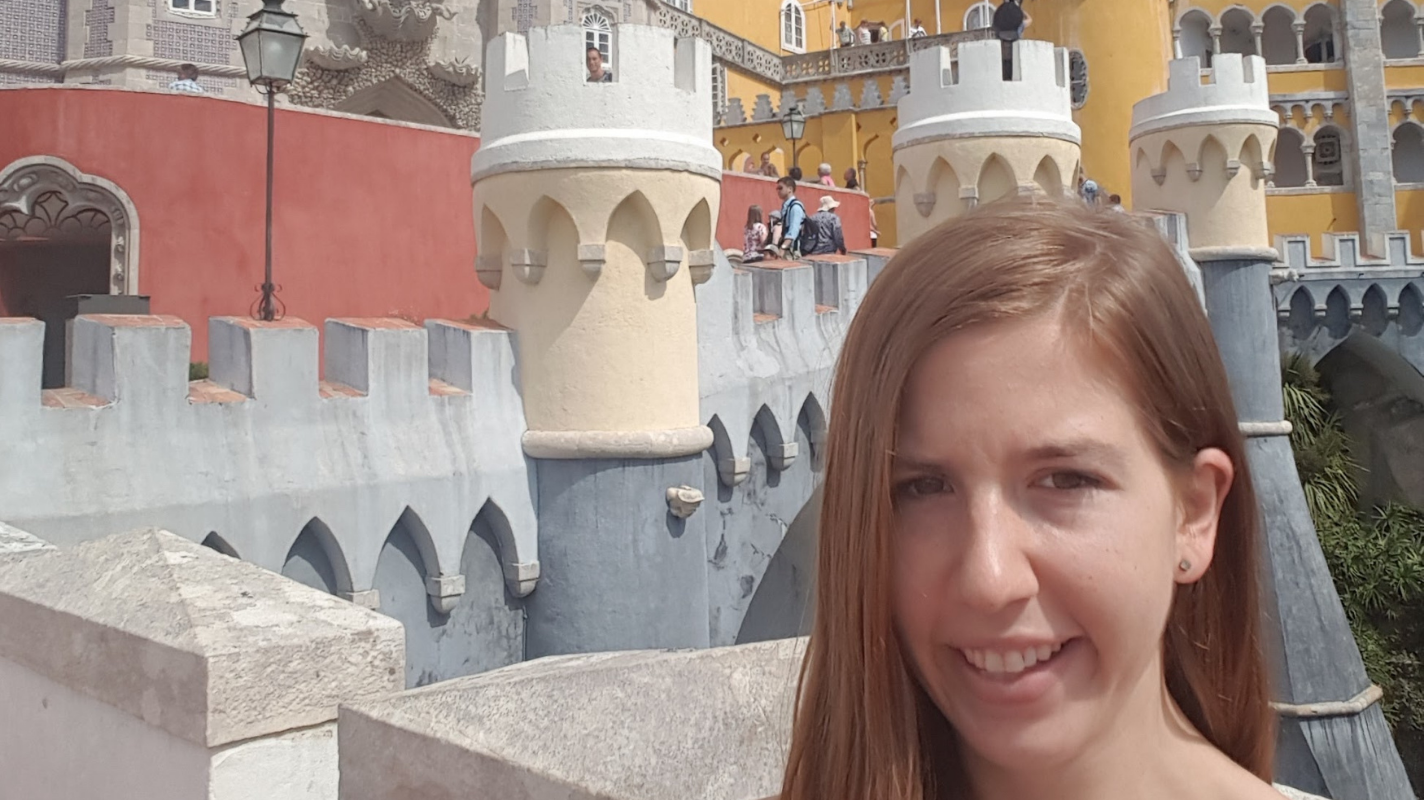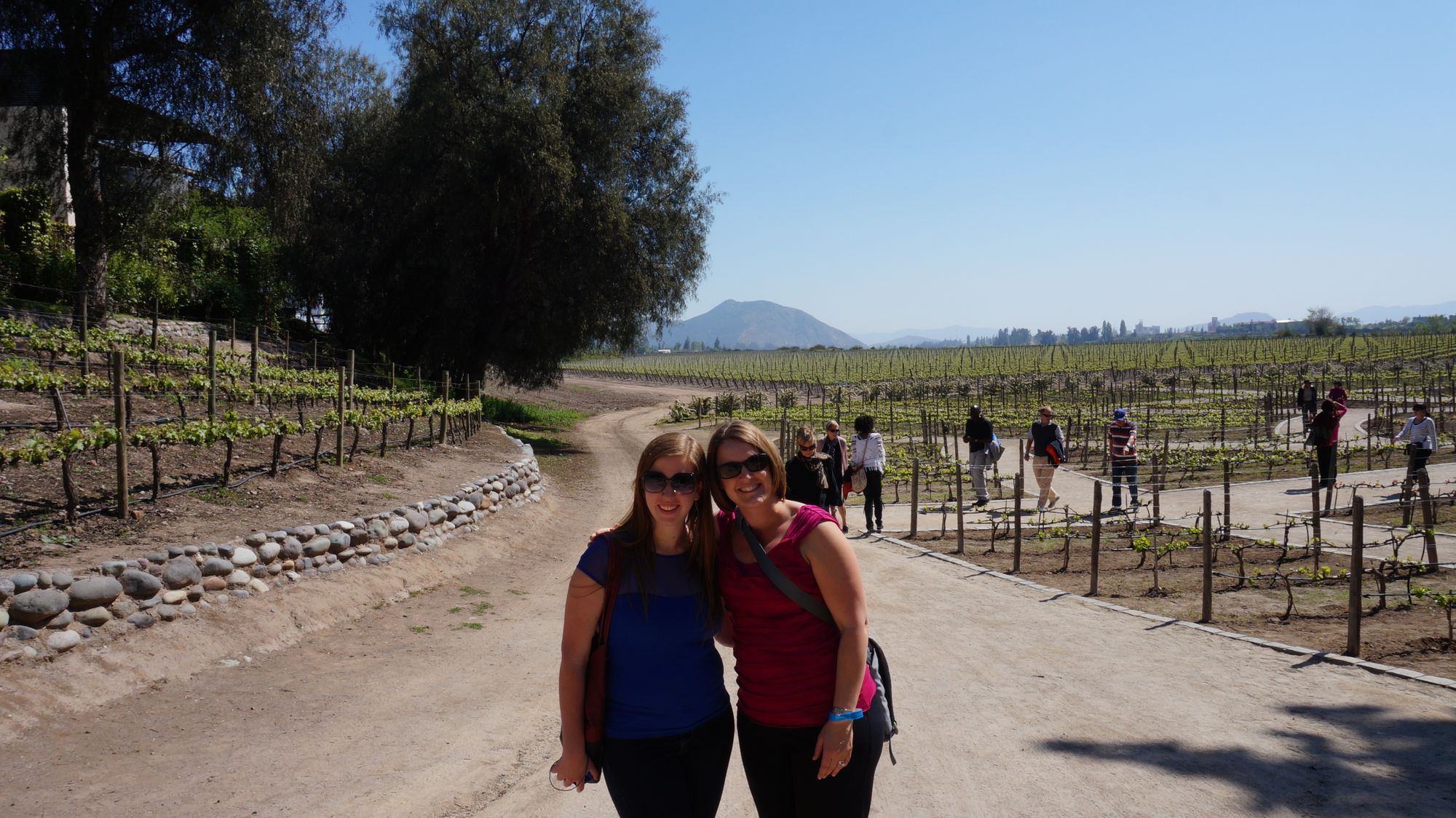Dr. Katie Wilson (BSc Co-op '13, PhD '19) had a different pandemic experience than we did here in Lethbridge. Going out to restaurants with friends and into the lab each day to work on her cell membrane research made sense, given Canberra, Australia, was not under lockdown or restrictions last year. “I’d never heard of Canberra, even though it is the capital of Australia, before I went there,” Katie admits. Katie has just returned from two and a half years working as a postdoctoral researcher at the Australian National University in the Research School of Chemistry. Katie has always been passionate about international experience, and when her supervisor forwarded her a job posting in Australia, she was quick to apply. “Living in Australia during the pandemic, life was actually fairly normal, because there were no cases. Coming back to quarantine, it’s definitely different,” she explains. While living in Australia during the pandemic was a blessing in many ways, there was one challenging aspect. “We couldn’t leave the country. If we’d left, we would never get back in.” Missing family holidays and traditions were some of the stressful consequences of the pandemic. Quarantining in her parent’s basement in Canmore is a welcome reunion.
At uLethbridge, Katie majored in biochemistry during her BSc and then went on to complete a PhD in computational chemistry. During her PhD program, she won many awards including an NSERC Vanier Scholarship, which is one of the most prestigious PhD scholarships in Canada. She won the Gold Medal of the Governor General of Canada and the U of L PhD Metal of Merit when she graduated from her PhD program in 2019. It’s no wonder her research would take her somewhere interesting.

While in Australia, Katie investigated membrane proteins and their potential to aid in the creation of drugs for chronic pain. “Membrane proteins are the proteins that allow substances to enter and leave cells. Compounds that enter your cell, can influence cellular processes,” she explains. “One of the main proteins I was looking at is involved in the pain pathways in our brain. We are looking at how this protein works and if we could stop this protein from functioning. If we could stop the protein’s function, that could lead to pain relief. This has applications in creating new drugs to treat chronic pain that could potentially replace opioids in treating chronic pain conditions and reduce the prescription of opioids.” While opioids are highly addictive and invasive, the drugs Katie looked at were based on a fish oil type of substance. “They break down into the things we would have in our body from eating oils, which we hope will lead to fewer side effects,” she adds.
Katie’s work occurs on her computer, completing computational research. She worked with a team of researchers ranging from undergraduate and PhD students to faculty members and fellow postdoctoral researchers. Katie would have Zoom calls with the experimental group, who worked with cell cultures in the lab. She says, “It’s been interesting to study the problem from both the computationally and experimental perspective. This has allowed us to obtain a more complete understanding of how the system functions and how it is changed by the potential drug molecules.” Understanding how different drug molecules act is paramount to the development of newer, better drugs. “We are looking at new ideas and ways of developing drug molecules instead of going off the same techniques we’ve always used. We’ve seen this with the COVID vaccines. We now have these mRNA vaccines, a new class that we’ve never seen before, that are now hopefully going to end this pandemic and lead to future vaccines,” she points out. Based on lipid molecules, the drugs Katie and her team looked at also have not been used before.
This experience in Australia isn’t the first time Katie has contributed to groundbreaking research. Rather, it is the latest in a long line of research endeavours. “At this point in time, I have 30 published papers, 7 of which are from my time in Australia. The rest are from my time in Lethbridge. Science doesn’t necessarily stick to our deadlines, so we’re still wrapping stuff up in Australia,” she admits. Along with her published findings, Katie has presented at a staggering 43 conferences throughout her career, internationally and domestically. From Indonesia to Chile, Honolulu to Portugal, Canada to Australia, Katie is worldly, adventurous and steadfast.

The work Katie is most proud of this year is her work looking at the different components of cell membranes and how they affect the cell structure. She explains, “Typically, cell membranes are modelled with only one to two components, while in reality these membranes are extremely complex, composed of greater than 60 species. We wanted to see how the behavior of the membrane changes if we added more complexity, say 10 or 50 different components to better approximate a realistic membrane. As we added this complexity, the membrane properties changed which indicated to the field of research that our methods may need to be adjusted to accurately understand membrane systems.”
Katie’s lab experience is extensive, but as a student, she also involved herself in community and volunteer work, taking part in many clubs and initiatives, including Rotaract as a club executive. During her time in Rotaract, she and her team were excited to win the Rotaract Outstanding Project Award for USA, Canada, and Caribbean based on their project Foundations for a Better Future, which funded the construction of an accredited Kindergarten in Mexico. Kindergarten is not accessible in Mexico, but elementary is. Unfortunately, to start grade school, children need two years of kindergarten. Seeing this discrepancy, Rotaract helped a group of teachers to build a free kindergarten for students, fundraising and working through all the channels of Rotary in Lethbridge and Mexico to get the kindergarten full accreditation. “I actually got to go to Mexico to see the opening of that kindergarten,” Katie beams. “We wanted to involve the community and build job opportunities with this project. We provided the money for it, and the locals built it.”
When I came to the University of Lethbridge, I didn’t know computational chemistry was even a field that existed. I didn’t know you could do chemistry on a computer. My perception of research was of an older man in a white coat, alone in a lab, which is sort of the traditional view of researchers. But it’s actually a really friendly, diverse and collaborative environment. I’m always talking to people. There are more opportunities than what you know!
She also explored the world of experiential learning through co-operative education, exchanges, and independent studies. “I did an exchange to Portugal during my PhD, I recommend students take advantage of these opportunities and learn from them,” she says. Throughout her time in the co-op program, Katie met an important figure. Dr. Stacey Westmore, a professor in the Department of Chemistry & Biochemistry, served as her supervisor and mentor at uLethbridge. “Researching in Dr. Wetmore’s lab, I looked at DNA-protein interactions. After my first co-op with her, I went on to do an independent study, another two co-ops and my honours thesis with Dr. Wetmore. I ultimately ended up doing my PhD in the Wetmore lab!” For Katie, Dr. Wetmore’s support made all the difference. “The guidance she gave me throughout my undergrad, and PhD, even helping me get my post-doc position, was immense. She supported me throughout my time at uLethbridge and beyond.”
So what’s next for Katie? Her goal is to work as a university professor in computational chemistry and as a researcher. “I like working with students, teaching them about research, and discovering new things through research,” she says. Through her connections, discipline and community involvement, Katie has carved herself an exciting path. “When I came to the University of Lethbridge, I didn’t know computational chemistry was even a field that existed. I didn’t know you could do chemistry on a computer. My perception of research was of an older man in a white coat, alone in a lab, which is sort of the traditional view of researchers. But it’s actually a really friendly, diverse and collaborative environment. I’m always talking to people. There are more opportunities than what you know!” After the well-deserved summer in Alberta, Katie will be moving out East to the greater Toronto area, where she has another research position waiting for her. She hopes to get plenty of hiking and family time before then. Katie’s strong legacy at uLethbridge is a beacon of inspiration for young scientists.
